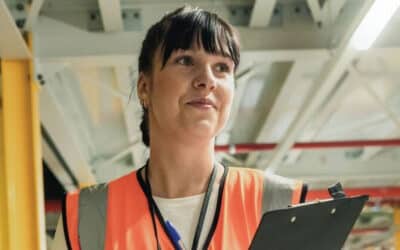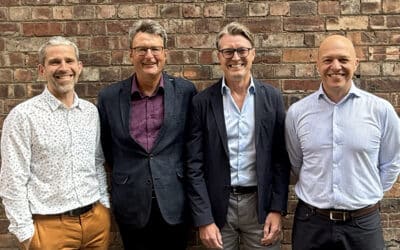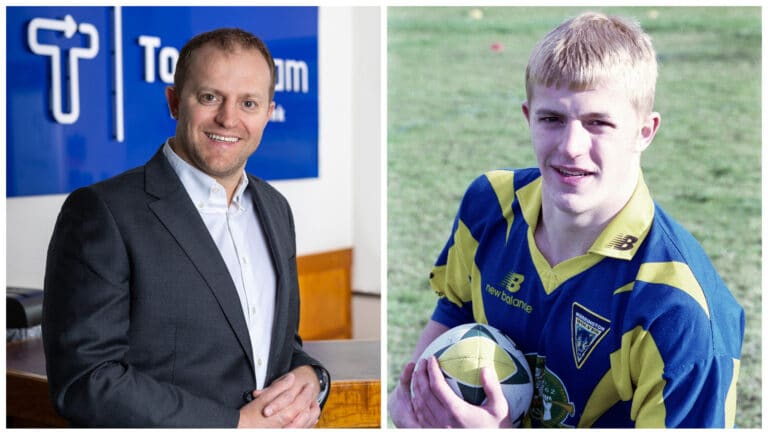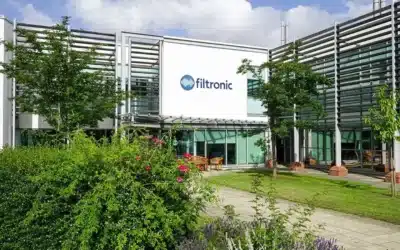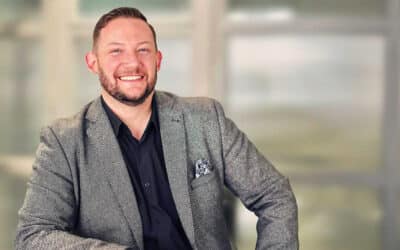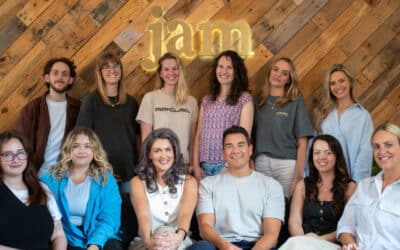Ex-professional rugby player Jamie Boyd is the founder and managing director of Today Team – a nationwide same-day courier company operating out of Taylor
Business Park in Risley.
After a serious knee injury ended Jamie’s sporting career at just 24, he used a £3,000 loan from The Prince’s Trust (now The King’s Trust) to lease a van – working
70-hour weeks to build a multi-million-pound operation from scratch. An official mentor for The King’s Trust, Jamie is also a non-executive director of The Disability Trading Company.
As Today Team celebrates 20 years on the road, setting its sights on a £5m turnover, Boyd reveals how he boot-strapped his way to success with no prior business
knowledge or experience, and what he’s learnt along the way.
Which single daily habit or practice could you not do without?
Morning exercise. My alarm is set for 5am but, typically, I’m awake at around 4.30am. I’ll either get out on my bike around the Cheshire lanes, cycling 10-15 miles, or I’ll lift weights in my home gym. I’ve got a limited amount of time, but getting those endorphins going is good for energy and clarity before I start the working day. And it helps with my love of food… I’ve got to burn off those calories!
What’s been your luckiest break?
Being approved for a £3,000 loan from The Prince’s Trust. When I applied, I’d never even worked in a business – let alone started one! I had to write a business plan and present it in front of a panel, which was daunting for 24-year-old me. I always remember one of the panellists challenging me on not putting enough in the expense projections for postage and stamps! After I’d said my bit, I hopped back on the train to Warrington and found out the next day my loan had been approved.
I don’t recall how I celebrated, but I do vividly remember picking up my Sprinter van in Deeside on a Saturday lunchtime, driving it down the M56 to Warrington, and getting ready to launch the business that Monday morning. That was when everything got real. My career, as an entrepreneur, had officially begun.
What is your best failure?
Playing for Warrington Wolves, my hometown club, was literally my childhood dream come true. I’d gone straight into the first team as a full-time squad member, but all that came crashing down round my ears when I busted my knee.
My professional playing career was gone in an instant, but boot-strapping a business from the ground up – as I quickly learnt – was all-consuming. I was putting in some serious hours, so I didn’t have time to dwell on what could have been.
When I think about the journey I have been on – how I’ve grown and developed personally and professionally – I’ve far exceeded what I would have done in rugby.
So, with the benefit of hindsight, my knee injury is the best failure I’ve ever had.
What is the best investment you’ve ever made, either financial or time?
Deciding to work with a non-executive business mentor. I was five years into setting up the business when I met Bill Hobden after a BNI meeting in Warrington. Bill offered to coach me for £1,000 a month. At the time, my £300-a-month flat was already a stretch. It was a pivotal decision but, looking back, I would have paid him triple. That was my first big lesson: Invest in yourself. It changed everything. I was full of drive and passion, but Bill helped me join the dots from the commercial aspect.
He got me into the discipline of running a business, putting in place practices I follow to this day. That partnership with Bill helped triple Today Team’s turnover within three years.
Which podcast or book would you recommend others to read/listen to, and why?
The first bit of homework I always give my mentees is: Read ‘The E-Myth: Why Most Small Businesses Don’t Work and What to Do About It’ by Michael Greber. The sooner you read it in your journey, the better.
Greber really makes you think about whether you’re building a business entity, or a prison for yourself as the owner. I mostly do a good job of staying in the ‘entrepreneur’ role but, during Covid for example, I had to roll up my sleeves, get back into day-to-day operations and steady the ship. After everything went back to ‘business as usual’, I struggled for a period to adjust to the energetic shift.
It’s always worth reflecting on which ‘hat’ you’re wearing – ‘technician’, ‘manager’ or ‘entrepreneur’. ‘The E-Myth’ is a powerful reminder of the necessity of doing that.
What one piece of advice would you give your 21-year-old self?
At 21, I was being paid to do something I loved and enjoying the lifestyle that came with it. What I would say to younger me is: “Expect the best but prepare for the worst”. In other words, have a Plan B.
The career of a professional rugby player has an expiry date. It’s rare to play through to retirement and, even if you do, most ex-players are left with creaks and strains from old injuries. Trust me, you feel it!
So, I would also advise: Invest in learning and development. Work with a mentor; do the reading. The answers are all out there. There are plenty of people who are willing
to share their journeys and explain how they built profitable businesses. As the old saying goes: “Success leaves clues”. With a smartphone, that information is often only a click away.
Who or what has had the single biggest influence on your working life?
Aside from Bill, who I mentioned earlier, my old Vistage group: a peer-to-peer advisory group made up of owners, MDs and CEOs. Even though there were some serious high-flyers in that group, there were no egos or attitudes. I quickly realised that we might all be working at different levels, but a lot of the problems we faced were the same. After attending for five years – getting some tough love and learning a lot along the way – the group gave me the platform to grow as a Managing Director.
Tell us something about you that would surprise people.
I auditioned for the BBC’s Dragons’ Den! I was a big fan of the show back in 2008, when it was the classic line-up of Deborah Meaden, Peter Jones, Duncan Bannatyne, Theo Paphitis and James Caan. I had contributed to an advertorial by our business banking partner at the time, which got spotted by the production team – leading to an invite to audition. Unfortunately, I didn’t get to meet the Dragons, but I must have done something right because I got a call back. Ultimately, however, I took myself out of the process – and I have no regrets.
If there was one thing you could change about your career, what would it be and why?
I wish I’d had more self-belief in the early years. I gave too much thought to my lack of business experience and not having a university degree. My whole life, until that point, had been fitness, training and playing rugby.
Learning how to do everything myself – customer services, sales, marketing, recruitment, finance etc. – proved to be a blessing. Because I’ve been so hands-on, I know the opportunities and challenges in every aspect of our operations.
What does success look like to you?
Doing what we say we are going to do. I take pride in our record on customer service and reliability – something that hasn’t changed since my van-driving days, when I was delivering furniture locally. On a personal note, Today Team has given me purpose and challenge, which are the two things that make me tick. Some people prefer to sleepwalk through life, but I admire those who are willing to take on the challenge of building something. This is one of the many reasons why I love coaching and mentoring.


